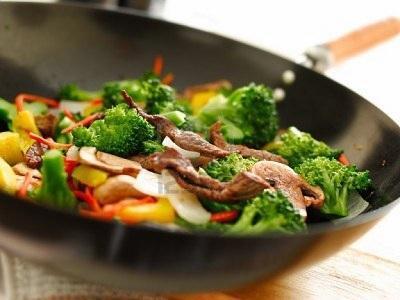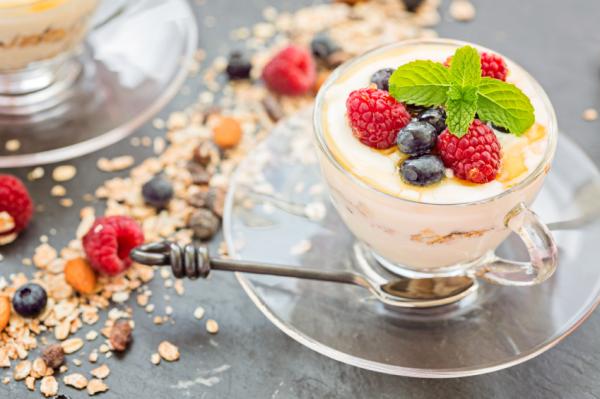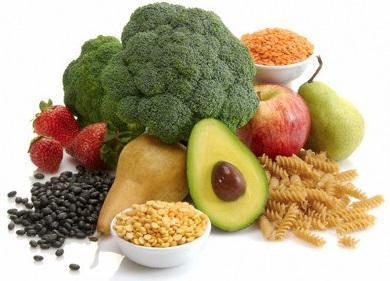What to Eat when you have Gastritis


Gastritis is an inflammation of the stomach lining(gastric means "of the stomach" and -itis is a suffix used for conditions with inflammation). It is one of the most common stomach problems, so common it reportedly will affect half of the world's population at some point in their lives. The stomach lining (or mucosa) produces the acids which break down food. These acids can actually eat away at your stomach, so glands in your mucosa produce mucus to protect itself. With gastritis, the inflammation stops your stomach from being able to do this well. It can be one off, chronic or acute. Regulating your gastritis diet by knowing what to eat when you have gastritis will mean the difference between a quick recovery and further problems down the line.
Food to avoid when you have gastritis
As gastritis causes the overproduction of stomach acid, adding to this acid is generally not a good idea. There are certain foods which will increase irritation of the stomach lining. Do you know the old adage "hair of the dog" meaning to take another alcoholic drink to cure a hangover? In terms of gastritis, this is one of the worst things you can do. Alcohol can cause a bout of gastritis, even in small doses if the person is particularly sensitive to it. Drinking more will only agitate the mucosa further.
If you are suffering from gastritis, you may not even know about it. Many cases don't present any symptoms or, if they do, might be ignored as they are thought to be something else. This is because the symptoms of gastritis are similar to those of other conditions:
- nausea
- pain at the top of the abdomen (most common)
- belching (often accompanied by a foul odor)
- bloating
- Feeling full quickly
- loss of appetite
- vomiting
The last of these can be worrisome. In acute gastritis, the stomach acid eats at the mucosa so much that it causes blood to seep in. If you see streaks of blood in your vomit or if it is a dark red or even black color, it is likely there is some internal bleeding. However, vomiting with gastritis can provide clear, green or yellow bile. This is often the case when you have thrown up all stomach contents and are left with acid and bile (yellow).
Gastritis has two other major causes - bacterial infection and the use of NSAIDs. The bacteria in particular is known as Helicobacter pylori. This is present in many people across the world and some research suggests it is useful for a healthy digestive system. However, it can also cause gastritis. NSAIDs are a type of drug which act as an anti-inflammatory. Ibuprofen is perhaps the most common and increase risk of gastritis is one of the reasons they are often required to be taken with food. The symptoms, regardless of the cause, are the same.
When suffering from gastritis, whether acute, chronic or a one off, there are foods to avoid if you want to follow a proper gastritis diet. If you don't you may end up worsening the condition:
- Coffee & tea
- Alcohol, sugary & carbonated beverages
- Dairy products, including butter and cheese
- Citrus fruits such as orange, lemon or grapefruit, because they increase acidity and acid reflux
- Carbonated soft drinks which can increase agitation in the stomach lining
- Acidic vegetables such as tomato (in any form), onions and garlic
- Highly spiced meals, especially those which are hot and contain chili pepper or seasoning
- Foods containing a high level of fats and refined oil such as junk food or potato chips
- Cured sausages because of their high fat content
- Is also necessary to avoid food containing added sugar such as confectionery or soft drinks, as they also tend to have a high level of fat and, in the case of carbonated drinks, increase the production of gases in the stomach

Recommended cooking methods
When you have gastritis it is very important to maintain a healthy diet, based in the particularly healthy preparation of foods. Fried dishes, those which are heavily spiced or those with excess sauces tend to not agree with a stomach with gastritis. That is why it is best to go for simple preparations and few condiments. Steamed, oven cooked or grilled meals are the most recommended.
Eating spicy food if you have gastritis will only agitate your stomach lining. In fact eating food which is too hot can cause gastritis. Some people are more susceptible to gastritis, whatever they eat. This could be due to a condition such as celiac or Crohn's disease. Both affect the lining of the gut and inflammation can occur when eating particular foods. Alcoholism and even some STDs like AIDS and herpes can have a bearing on your stomach's health.
Eating cold food with a neutral pH level will be ideal as heat, high acidity or high alkalinity can exacerbate gastritis. It may mean you won't be having as much fun with flavorful food at dinner time, but it will be worth it in the long run.

What to drink with gastritis
You already know what type of drinks to avoid with gastritis, but what can you drink if you want a change from boring water on your gastritis diet? Some may help your recovery whereas others may help prevent cases happening in the future. Here are some of the the best drinks for gastritis remedy and prevention.
- Cranberry juice: As it contains many antioxidant properties, it can prevent the Heliobacter pylori bacteria causing gastritis to grow or advance. However, it should be a preventative and not used once you have a case of gastritis.
- Apple juice: Apple has potential benefits to relieve many stomach related problems, due to the diuretic and depurative properties it has, which help get rid of any toxic fluids found in your organism. However, it is also acidic so should be watered down and if it agitates your stomach further, should be avoided.
- Peppermint infusion: If you are also developing peptic ulcers due to gastritis, taking peppermint infusion (without caffeine) can be a good option to relieve the pain you may be experiencing.
- Skimmed milk: If you really do miss milk in your daily diet, the best thing to do it to take low-fat or skimmed milk to quench your craving.
- Almond milk: To be 100% sure you're not further damaging your stomach, it's best you choose vegetable-based milk such as almond milk, rice or coconut milk. This is because the fattiness of cow's milk or similar may end up agitating your stomach lining more.
Snacks for gastritis
If you're wondering what you can take to work or school as a snack so it does not affect your condition and keep up with your gastritis diet. Let's take a look at the most useful snacks you can take.
Licorice stick
If you're not that hungry but need a snack that will help you improve your gastritis quicker, chewing on a licorice stick around two to three hours before your main meal can help calm your stomach and help with possible peptic ulcers too.
Fruit for gastritis
Although citrus fruit is not recommended, having fruit as a snack is also a great idea. We recommend a portion of the following fruits that are appropriate when suffering from gastritis:
- Kiwi
- grapes
- Banana
- Melon
- Peach
- Apple
Again if any of these foods to help treat gastritis agitate your stomach, do not eat them. Some may be beneficial if you eat them with yogurt. No-fat yogurt can help soothe your stomach, but also increase beneficial gut flora which will help yo recover from gastritis. You can add a little honey for sweetening as the natural sugars in it shouldn't cause more harm when blended. Avoid if your gastritis is acute.
Applesauce
As we've already mentioned above, apple is great when it comes to getting rid of harmful bacteria and toxins in our gastric system. Whether you eat it for breakfast or as a snack, applesauce can also contribute to prompt recovery. Mix it in a bowl with a couple of spoonfuls of oatmeal and you have yourself the perfect snack for gastritis!
Probiotics
Probiotics are foods that have live bacteria that can help improve your intestinal flora. This is why having natural yogurt or kefir as a snack is highly beneficial for gastritis. Kombucha has been posited as being helpful, but as it is fermented and often has sugar added, it may not be ideal. There is perhaps too little evidence to support whether or not it is good for gastritis.
Grains
Whole wheat grains are usually neutral foods which should not exacerbate your gastritis further. This is often the reason someone might offer you a piece of dry toast if you have an upset stomach. It will help you to get nutrition without affection the stomach lining. The fiber in the grains will also help to strengthen your dietary tract. It will also help with bowel movements. Poor digestion can lead to congestion in the colon which can also impact the stomach. Bread, crackers, pasta and tortillas can be useful if you have gastritis. Of course, this also depends on what you have with them.
Vegetables for gastritis
Broccoli shouldn't make gastritis worse, but it will have antibacterial impact on your stomach which can help prevent the Helicobacter pylori bacteria. Vegetables in general tend to not be too acidic and will help build up your strength.

Meals for a gastritis diet
During your meals, it is appropriate to increase the intake of fiber in the diet, especially those that are present in wholegrain cereals, green leaf vegetables like spinach or broccoli and most fruit except for citrus fruits, as we've seen above. The foods high in fiber are varied. Add those you can eat to your diet to notice a great improvement in your stomach's health.
It is important that you always try to consume a portion of fiber at every meal. Another great ingredient that will help your gastritis are cold water fish. They are soft on your intestinal transit too, especially when grilled or baked. Their omega-3 fatty acids also contribute to recovery. If you're craving meat, it's important you only cook lean meat. Fatty meat and red meat can impact on your digestive system. Again, remember the best methods to cook them.
Taking all of this into account, oneHOWTO would like to give you some meal options you can make if you have gastritis:
Breakfast
- Wholemeal toast with avocado and a dash of olive oil
- Oatmeal with grapes and skimmed milk
- Granola with rice milk
- Scrambled egg and spinach
Morning snack
- Fruit mentioned above
- Yogurt
Lunch
- Wholemeal rice with steamed broccoli and spinach
- Wholemeal spaghetti with pesto
- Grilled turkey with steamed carrot and kale
- Baked chicken with Swiss chard
Afternoon snack
- Oatmeal and applesauce
- Fruit mentioned above
- Handful natural almonds
Dinner
- Grilled hake with sweet potato and mushrooms
- Spinach omelette
- Grilled tofu with mixed & steamed green leafy vegetables

Tips to improve gastritis
Now that you know what to eat when you have gastritis, it's important to follow these great tips so you can recover much quicker. You'll see they're all pretty simple and easy to follow:
- Instead of three large meals, a diet to tackle gastritis should include five or six meals per day. Each should be small to moderate in portions. Eating in large quantities will increase stomach unrest. Eating smaller portions will reduce the strain on your digestive system and give it the opportunity to fight back.
- Eat slow, chewing food very well. If you suffer gastritis do not skip meals or your stomach will let you know with pain and acute discomfort. Eating food quickly will cause indigestion and could lead to increasing stomach acid.
- In addition, control personal tension and stress. Stress can cause you to have an upset stomach, so resting and avoiding stressful circumstances will help you recover from gastritis, Mild exercise will help you recover much faster and improve the status of your gastritis. If you overdo it, this can exacerbate your gastritis.
- Use olive or canola oil to add to you baked or grilled recipes. Avoid using butter, sunflower oil or any other.
- Make sure you eat at least two hours before you go to bed. Digesting while asleep can be very bad for your stomach even if you don't have gastritis.
- It's important to stay hydrated when suffering from gastritis. This is why you should rink around 1.5 to 2 liters of water per day.
If you think you have gastritis, but are unsure you should seek medical advice. Many of the symptoms could be from a different condition. Also, gastritis may be a symptom of a larger underlying condition. A doctor can run tests to see if further action needs to be taken. They may also prescribe medical strength antacids if necessary.
This article is merely informative, oneHOWTO does not have the authority to prescribe any medical treatments or create a diagnosis. We invite you to visit your doctor if you have any type of condition or pain.
If you want to read similar articles to What to Eat when you have Gastritis, we recommend you visit our Diseases & secondary effects category.
Tips
- As citrus fruit is not recommended, make sure you get the right amount of vitamin C through other recommended fruit and vegetables, and take a supplement if you need to.









